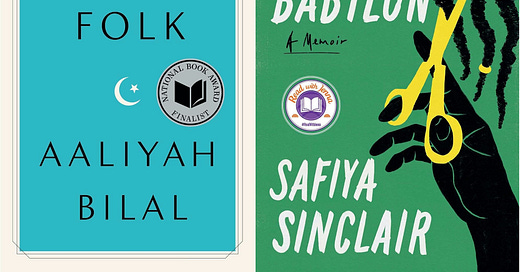Aaliyah Bilal’s collection of short stories, Temple Folk, and Safiya Sinclair’s memoir, How to Say Babylon, are more than superb recent writing about Black folk—though they are certainly that. They are also nothing short of literary events: two works of well-crafted prose that tell us much about people about whom we otherwise know so little.
Both authors treat of the struggles of the descendants of African slaves in the Americas. The denizens of Safiya Sinclair’s Rastafarian community are the besieged, impoverished survivors of international tourism’s takeover of Jamaica’s Montego Bay. Aaliyah Bilal’s African American protagonists span the breadth of the Black working classes in the United States: along with accountants, MBAs, and engineering students in suburban enclaves and gentrified inner cities, they include the ex-cons, domestics, janitors, street peddlers, and panhandlers in redlined zip codes who, from its obscure beginnings, found their way to the Nation of Islam. Both books inhabit the generational crisis of faith that attended the global demise of Black Power and Black liberation in the 1970s: fathers of Black messianic movements eating the sour grapes of defeat, exhaustion, and failure; their children’s teeth set on edge.
Keep reading with a 7-day free trial
Subscribe to Book Post to keep reading this post and get 7 days of free access to the full post archives.



